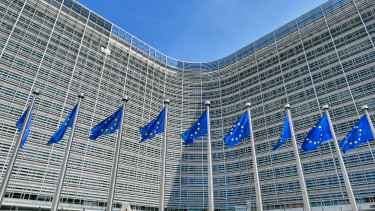EU offers 4 million doses of BioNTech-Pfizer vaccine to coronavirus hotspots
The four million more doses will help Member States in their efforts to keep the spread of new variants under control, said Commission President Ursula von der Leyen.
Through their targeted use where they are most needed, in particular in border regions, these doses will also help ensure or restore free movement of goods and people. These are key for the functioning of health systems and the Single Market
, she added.
Despite the current reduction in the number of deaths across the EU, due to vaccination of the elderly and most vulnerable people, the Commission is concerned by the development of a series of COVID-19 hotspots across the EU.
This is caused, in particular, by the spread of new variants, which are more contagious.
The BioNTech-Pfizer vaccine has proven highly effective against all currently known variants of the COVID-19 virus.
Regions like Tyrol in Austria, Nice and Moselle in France, Bolzano in Italy and some parts of Bavaria and Saxony in Germany but also in many other Member States have seen numbers of infections and hospitalisations rise steeply over the past weeks, leading Member States to adopt stringent measures and even in certain cases to impose new border controls.
Four million doses in total will be made available for purchase to Member States, pro-rata to their population. All of these doses will be delivered before the end of March. These doses come on top of the schedule of deliveries currently agreed between Member States and BioNTech-Pfizer.
BioNTech SE could have capacity to make 3 billion doses of COVID-19 vaccine with U.S. partner Pfizer Inc. next year, the German company’s chief executive officer said on Wednesday, making their pioneering shot far more widely available around the world.
“In principle, we could further increase manufacturing capacity,” Ugur Sahin said Tuesday in an interview with Bloomberg TV. “It depends on demand, it depends on factors such as if an additional boost to vaccinations is required.”
Sahin said testing of the third booster shot has already begun and they are working on a vaccine specifically against the South African variant.
Governments have reserved 1.3 billion doses of COVID-19 vaccines worldwide with an option to purchase several hundred million more. The vaccine developed by BioNTech-Pfizer has been approved in over 50 countries, and was orders were placed at the company by the United States, Europe, Japan, Canada and the United Kingdom. The USA ordered 300 million doses, two thirds of which are planned to be delivered by the end of May. 500 million doses are to be shipped to the EU with an option for another 100 million this year.
The companies plan to produce two billion doses of the two-dose vaccine in 2021 (enough for one million people) that would be raised to three billion in 2022, depending on demand.
This would greatly boost their revenues too. Pfizer expects COVID-19 vaccine sales to generate some USD 15 bn this year. In comparison, the company's total annual revenue was USD 42 bn in 2020. CEO Albert Bourla, however, thinks the price of the vaccine could go up.
Cover photo: Getty Images








